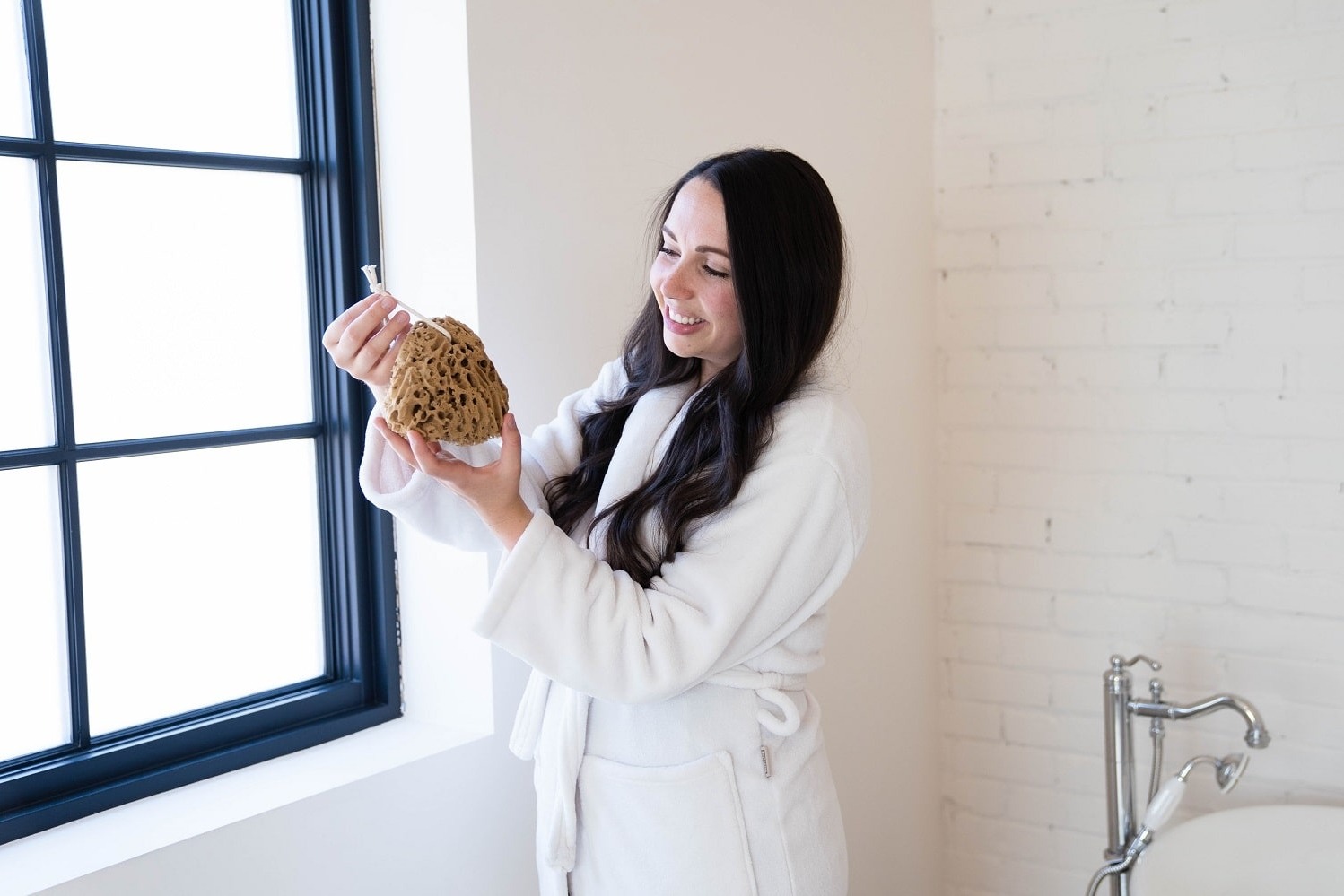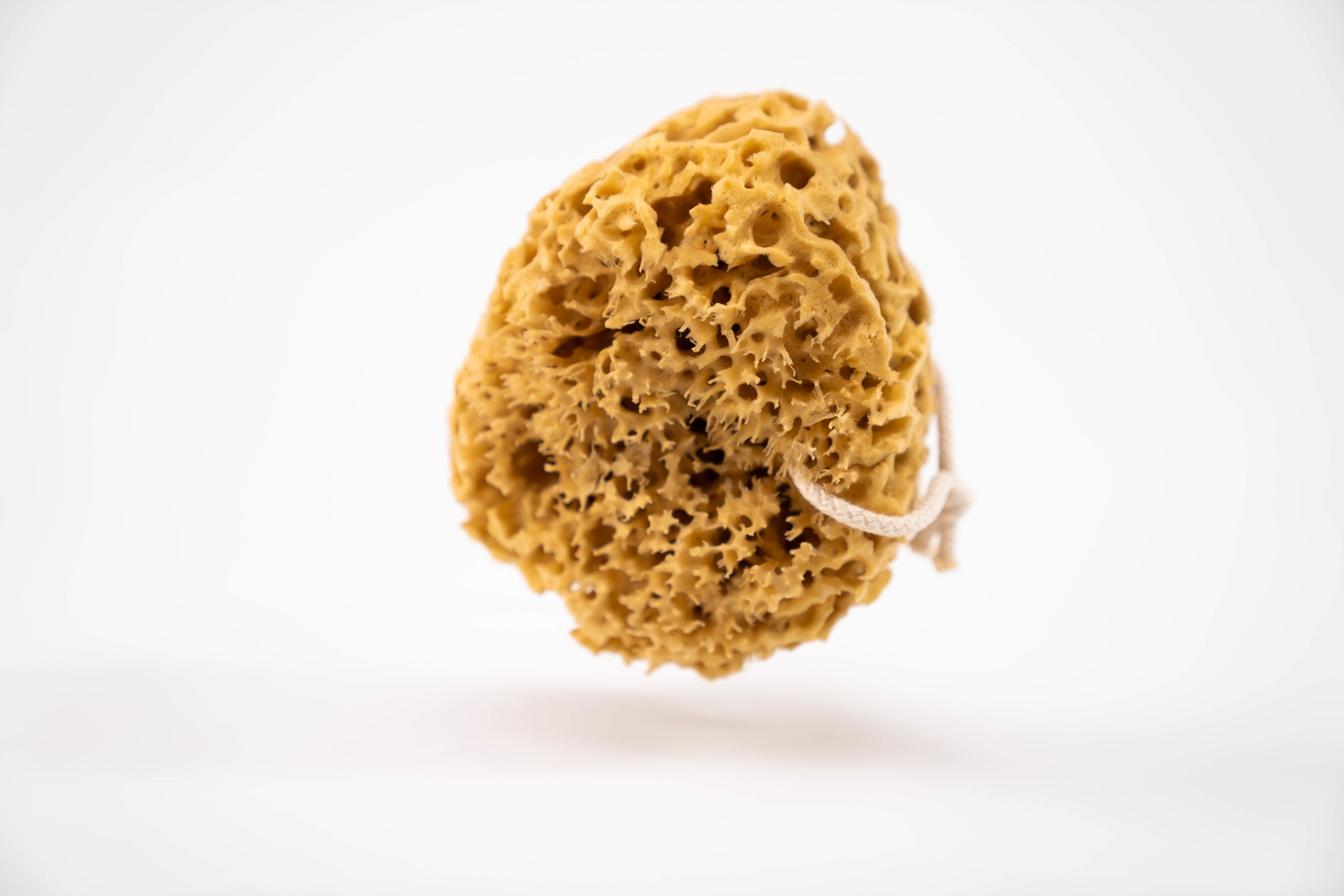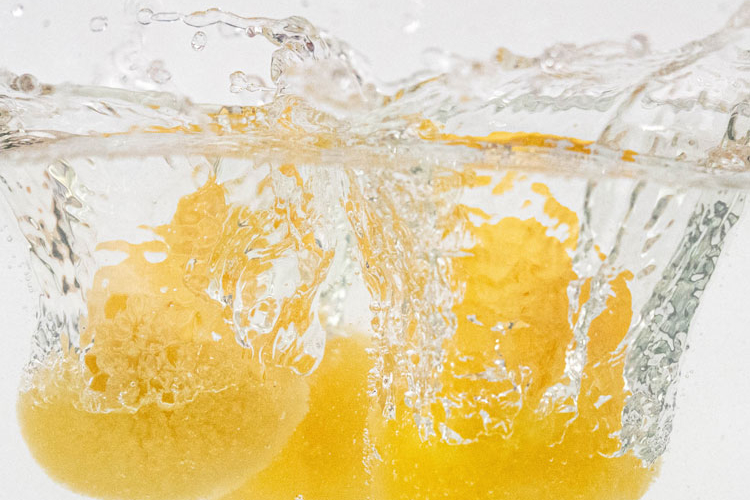OK, you’ve just bought your new sea sponge. Nice choice. Natural sea sponges are probably the most hygienic cleaning tool your skin can come in contact with. They are by nature antibacterial and antifungal. They do not contain petroleum by-products, are non-toxic and hypoallergenic. Sea sponges will not irritate the skin, cause you no allergies nor retain odors.
However, to keep it as hygienic as it is today and to help it prolong its life, you will need to properly care for your sea sponge. Read below how we recommend that you do that.
01. Before first use
Before using your sea sponge for the first time on your body, make sure to wet it under warm running water to soften it (sea sponges are stiff when dry, but very soft when wet).
Then, inspect it carefully for any particles from its habitat (i.e. bits of coral, shell or sea debris). Use tweezers to remove any unwanted particle and it should be ready for use.
At Jordan Benedict London, we take great care choosing well processed high quality sea sponges for your personal care. However, because of their marine nature, we recommend that you check your sponge out thoroughly before the first use.
Note: Be especially wary of sea sponges that are sold suspiciously cheap. A good natural sea sponge is not supposed to be cheap. The risk of harvesting, its rarity, its demanding processing, selection and sorting, all make it a costly product. Suspiciously low prices may imply bad quality, poor processing and ultimately decreased endurance and perhaps a risk for your hygiene, too.

Always buy good quality sponge but also always inspect it before first use. Be especially wary of sea sponges that are sold suspiciously cheap as they may imply bad quality and/or poor processing.
02. After each use
Remember: although sea sponges have the natural ability to inhibit the growth of bacteria, cleaning and drying your sponge after each use is necessary in order in order to prolong its life and maintain hygiene.
Make sure you thoroughly rinse out your sponge under running water after using it. Remove all soap and excess water and let it dry naturally on a clean and dry surface. This will help to keep it in the best condition for as long as possible.
It is also important to disinfect your sponge from time to time (once every 2-3 weeks). Here’s a good way below to do just that.
At Jordan Benedict London, our natural bath sponges come with a hanging cord attached which will be particularly useful for hanging and drying your sponge.

At Jordan Benedict London, our natural bath sponges come with a hanging cord attached which will be particularly useful for hanging and drying your sponge.
03. Periodic care for your sea sponge
Do the following to periodically disinfect your sea sponge:
- Soak the sponge into a bucket with water and vinegar solution to a 10:1 analogy, and leave to soak for 30 minutes.
- Remove it from the bowl and squeeze it to remove excess liquid.
- Set out to dry on a clean dry surface, such as the bathtub, or hang out to dry using the hanging cord.
- Use again. The sponge should be as good as new.
Once in while, instead of vinegar you may use baking soda (in about same analogy and same duration as with the vinegar). Baking soda will revitalize and restore your sponge’s volume.
Of course you could also use other germicides such as tea tree oil or hydrogen peroxide, but for us simple white vinegar and baking soda are just fine.
Avoid leaving your sponge in the mixture for much longer than the suggested period, as this may deteriorate it’s strength after a while.
More things to keep in mind:
- Remember not to leave your sponge in the mixture for too long, as this may deteriorate it’s strength after a while.
- If you notice any loose edges, trim loose those edges with a pair of scissors. This will help to keep the sponge smooth and prolong its life.

Soak your sponges into bucket of water and vinegar (or water and baking soda), in order to disinfect it, restore its volume and prolong its life.
04. What not to do
Here is what to NEVER do with your natural sea sponge:
- Do not use any kind of bleach on natural sea sponge as this will weaken it and cause it to deteriorate.
- Do not dry your sea sponge in a microwave or clothes dryer as this will make it shrink and harden.